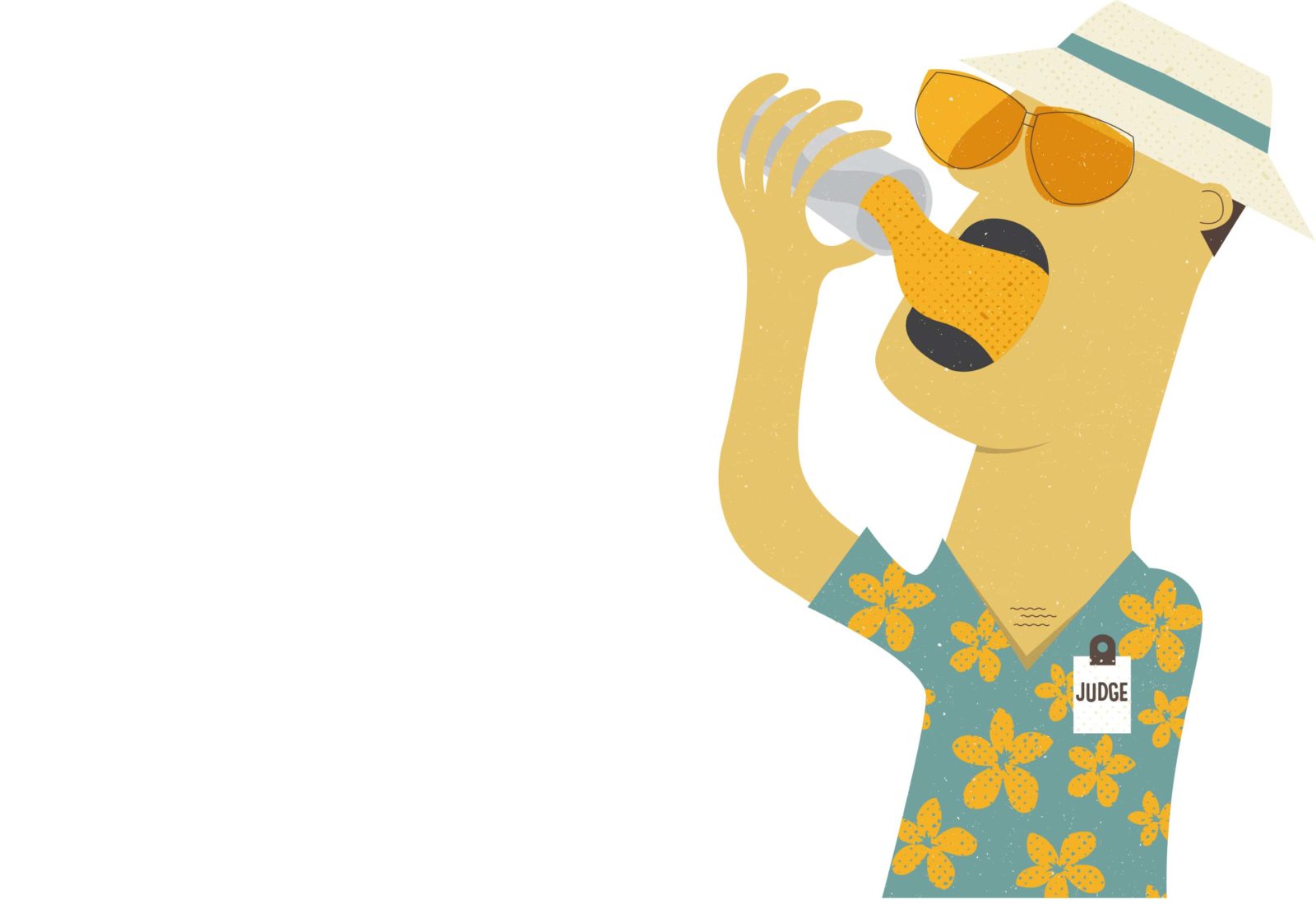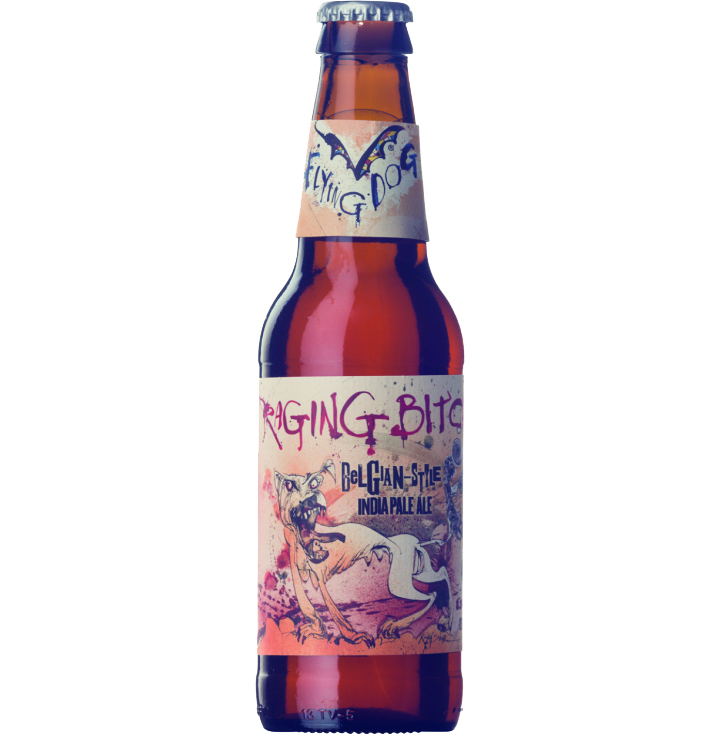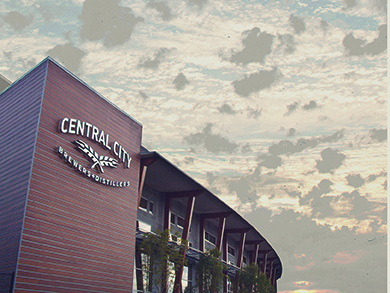
9 am-ish // There’s one bathroom stall here, which is going to be problematic, with dozens of dudes gathered to drink beer all day. This could get ugly.
Oh, wait. It’s ugly now. The bowl is filled, not with the liquid form of urine I’ve come rightfully to expect, but a bowlful of a foamy, frothy variety, rising like dish soap bubbles over the porcelain rim.
Someone needs a doctor – my first glimpse into the world of professional beer judging. Is this an omen? What does it mean? Oh man.
I’ve been asked to be a judge for the BC Beer Awards, despite not being Beer Judge Certification Program (or BCJP) certified, or feeling particularly qualified. For example, I don’t know what Märzen is exactly, or how it’s different from an Altbier, which is causing me a fountain of dread.
There are 32 beer judges gathered here among the chilly, industrial Direct Tap warehouse in East Vancouver. The bulk of these people are highly experienced and knowledgeable about beer. They are also, incidently, white men, between the ages of 25 and 60. Some are bearded, many are not. They are lean, they are robust. They are naturally talking only about beer, using technical language that only aggravates my inferiority complex.
One of these is Danny Seeton, a Parallel 49 brewer and nationally certified beer judge, leading the conversation among a loose semi-circle of a half-dozen other men, sporting a sizeable BCJP badge on his shirt.
“Are you ready for this?” I ask him.
“I was born ready,” he says. He looks pale and his eyes are bloodshot.
“OK.”
Our mission is simple: Everyone is paired up and given a dozen blind tasting samples of beers in a single category to evaluate and award a score to out of 50, based on aroma, appearance, flavour, mouthfeel and overall impression. There are several pairings evaluating beers in each category. The best of these beers compete for the best in that category, where one judge from every pairing chooses the winner. At the end of the day, the winning beers from all categories compete for the Best in Show.
“This is not as fun as it sounds,” Ben Coli, Dageraad’s head brewer and owner, says to me. “It gets exhausting after a while, tasting and pulling all the beers apart.”
“OK.”
I’m paired up with Danny and assigned to amber and dark lagers, a style of category that, naturally, has to include Märzen and Altbier.
There are six tables for judging. Each table is topped with growlers full of water, score sheets more nuanced than blood work charts, and several copies of the BCJP guidelines handbook, which is 80 pages thick and breaks down every beer style in minute detail.
10 am-ish // It begins. Everyone’s dipping their noses in their tiny plastic cups, swirling them about, holding them up to the light. The score sheet has a list of aromas that I’m taking for suggestions. Does it smell toasty or roasty? What’s the difference? Am I supposed to even smell anything? Because I don’t.
Some of the judges are burying their noses in the crooks of their arms, which looks like some bizarre cultic rite, but I’m told is actually a way to recalibrate their sense of smell. I give it a shot. I can’t tell the difference.
Danny’s describing our beers with words that I’m worried I’ll need a brewmaster’s diploma or PhD in linguistics to decipher.
Noon-ish // My palate and sense of smell have adjusted to the evaluating process. It’s fascinating to actually feel how the brain adjusts in a new context like this, in witnessing the subtle changes in how I perceive taste. It’s immediate, automatic. My confidence is soaring.
It turns out that, while I don’t have the language to adequately describe beer in the way that Danny does, I can accurately evaluate these beers based on their technical elements. It’s like critiquing any creative product – music, film, food – it’s equal parts sensing and intellectualizing that sensation. Danny and I are consistently within one to three points apart from each other on every beer.
“Of course we are,” he says. “This isn’t complicated. It’s fucking beer.”
3 pm-ish // Judging American pale ales. Fatigued. Grumpy, following a run of terrible entries. I’m told there are way fewer lousy entries this year over last, which is fine, but that doesn’t suppress my grumpiness any. Nor has it helped lift the energy in the area. Our numbers are dwindling and the warehouse area has a stark, almost-haunted quality of a high school exam room.
There’s grumbling abound, which makes sense. Ben was right. Judging is exhausting work – breaking down and intellectualizing every element of every single beer, a dozen at a time. Critiquing beer is a rigorous exercise in deconstructing its magic, eroding its mystery. What makes beer good? What makes it bad? It’s almost scientific, which is good – it means the beer is evaluated efficiently, stripped of bias – but it’s devoid of any romance.
And beer for me, for better or worse, is romantic.
Someone says, “It’s like a ferret crapped on my tongue!”
5 pm-ish // Best in Show competition is imminent. The dozen or so judges left seem dazed, exhausted, hungry. Or I’m projecting my own state on them. I guess it doesn’t matter.
The competition coordinator says to me, “Do you want to do Best of Show?”
“Not particularly.”
“Do you want to stay and watch then?”
“I can do that.”
I don’t, though. I duck out French exit style, but not before making a trip to the toilet in which, I’m relieved to report, everything appears normal.





